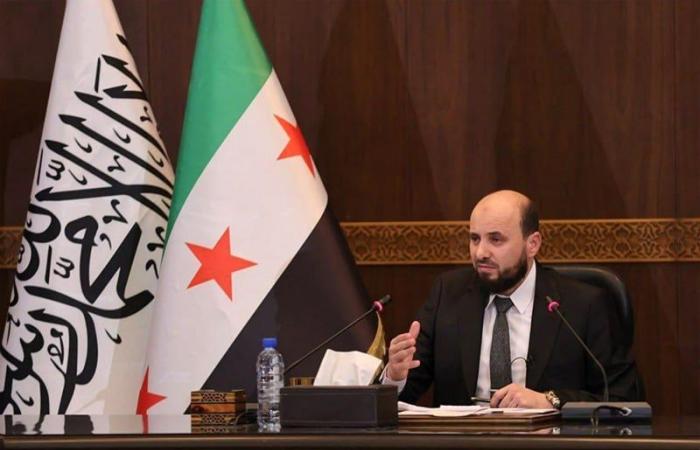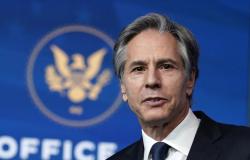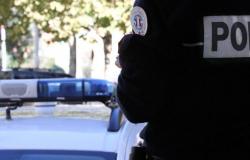The Prime Minister in charge of the transition in Syria, Mohammad al-Bashir, immediately appointed, promised calm and stability to the Syrians on Tuesday, two days after the fall of Bashar al-Assad’s power during a dazzling offensive by a coalition of Islamist rebels.
Along the same lines, Abu Mohammad al-Jolani, the leader of the Hayat Tahrir al-Sham (HTS) group at the head of the rebel coalition, told Sky News from Damascus that “people are exhausted by the war (…) The country is not ready for another, and is not going to find itself in another (war)”.
After the flight of Bashar Al Assad to Russia and the entry of rebels into Damascus on Sunday, life has returned to normal in the Syrian capital where businesses have reopened. But for many Syrians, the priority remains the search for loved ones who disappeared during decades of ferocious repression by the Assad clan.
The head of American diplomacy, Antony Blinken, declared that the United States “will fully recognize and support a future Syrian government resulting from an inclusive (political) process.”
“It is time for these people to enjoy stability and calm (…) and to know that their government is there to provide them with the services they need,” Bashir said.
He chaired a meeting bringing together the new ministers and those of the deposed power. “The mission of the interim government is to preserve the stability of institutions and avoid the disintegration of the State,” he said.
Terrifying scenarios
Mohammad al-Bashir was designated by the “general command” of the rebel coalition “Prime Minister responsible for leading the transitional government until March 1”according to a press release.
Born in 1983, in recent years he has led the administration of the rebels in Idlib, their stronghold in the northwest of the country.
HTS, aided by allied factions, launched the lightning offensive from Idleb on November 27 which led to the fall of power and allowed the rebel coalition to seize most of the country.
Former Syrian branch of Al-Qaeda, HTS claims to have broken with jihadism, while Western countries, including the United States, classify it as a terrorist.
Before Bashir’s appointment, the UN envoy for Syria, Geir Pedersen, indicated that he was in contact with HTS, stressing that this organization and other armed groups “sent a positive message to the Syrian people.”
“The most important test” will be the implementation of the transition, he nevertheless underlined.
The head of European diplomacy, Kaja Kallas, spoke “huge challenges” to come, hoping that Syria will not repeat the “terrifying scenarios” from Iraq, Libya and Afghanistan.
Israeli raids
Since the fall of Al Assad, Israel’s enemy, Israeli Prime Minister Benjamin Netanyahu affirmed that his country would not “will allow any hostile force to establish itself on its border”.
The army said it carried out hundreds of strikes in several neighboring Syrian cities in 48 hours against strategic military sites “to prevent them from falling into the hands of terrorist elements”.
Israeli leaders appear to fear chaos is brewing in Syria and are acting accordingly, experts say.
Israeli Defense Minister Israel Katz ordered the army to establish “a zone free of weapons and terrorist threats in southern Syria”. Earlier, Israeli troops took positions “in the buffer zone” on the edge of the part of the Syrian Golan occupied by Israel.
Secret prisons
After taking large areas of the country, the rebels opened the prisons to free the detainees, while the deposed power was accused by NGOs of arbitrary detentions and the worst abuses against the prisoners.
In prisons and on social networks, Syrians have been searching for several days for their loved ones, from whom they were separated due to the brutal repression.
At the infamous Saydnaya prison near Damascus, Sleimane Kahwaji, a rescue worker, returned after being detained there “55 days underground” in 2014 in an overcrowded dungeon. He said he saw two companions in misfortune die.
Since the start of the conflict in Syria triggered by the repression of pro-democracy demonstrations in 2011, more than 100,000 people have died in Syrian prisons, the Syrian Observatory for Human Rights (OSDH) estimated in 2022.
The White Helmets, a Syrian relief organization, announced that they had asked the UN to put pressure on Russia to obtain from Bashar al-Assad the plans of the “secret prisons” in Syria.
55 soldiers killed
Abu Mohammad al-Jolani – real name Ahmed al-Chareh – previously indicated that he “granted amnesty” to junior personnel of the army and security forces.
On Tuesday, the OSDH reported that 55 Syrian soldiers who fled during the rebel offensive were executed by the jihadist group Islamic State (IS) in the desert of central Syria.
On Monday, the United States said it was “determined” not to let IS reconstitute itself or create sanctuaries in Syria.






